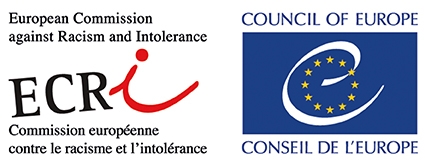ECRI Reminds Georgia of 2 Unfulfilled Recommendations
The European Commission against Racism and Intolerance (ECRI), the Council of Europe’s independent human rights monitoring body specialized in combating antisemitism, discrimination, racism, religious intolerance and xenophobia, has released a report in which it reminds Georgia of two as-yet unfulfilled recommendations.
As part of its fifth round of monitoring work, ECRI has renewed its process of interim follow-up with respect to two specific recommendations.
In its report on Georgia (fifth monitoring cycle) published on 1 March 2016, ECRI recommended that the Georgian authorities set up a specialized unit within the police to deal specifically with racist and homo-/transphobic hate crime.
The Commission said they were informed by the Georgian authorities that a human rights department had been established in the Ministry of Internal Affairs in January 2018.
ECRI said they were told the new department is tasked with monitoring the process of investigating hate crime incidents, identifying gaps and proposing measures for improvement. It is also mandated to cooperate with international organizations, such as the United Nations and the European Union, and various NGOs in order to develop action plans and hold training events.
“Unfortunately, ECRI has not received any information about co-operation with LGBT NGOs, which would be relevant to tackling homo-/transphobic hate crime. It expresses its hope that these groups will also be included in the co-operation work of the new department,” the follow-up report published on March 5 reads.
The Commission says the creation of this department is a very positive step, but it is still too early to assess the impact of its work.
“Such a department is not a substitute for a specialized investigative unit within the police, as recommended by ECRI. The new department was created to review hate crime investigations, not to carry them out. It therefore does not constitute a dedicated reinforcement of hate crime investigation capacity at law enforcement level,” the report reads.
However, ECRI notes positively that the Ministry of Internal Affairs cooperated with the Office of the Public Defender of Georgia to train, in May 2018, some 40 police officers, who are designated to be specifically in charge of investigating alleged hate-motivated crimes in the future.
“Taken together, the above efforts constitute promising steps towards tackling the problem of racist and homo-/transphobic hate crime more effectively and ECRI encourages the Georgian authorities to continue on this path. It considers that this recommendation has been partially implemented,” the commission stated.
The second issue concerns ECRI’s recommendation that the Georgian authorities scale up their support for the Council of Religions, which operates under the auspices of the Public Defender’s Tolerance Center.
“The authorities should in particular task the newly created State Agency for Religious Issues to cooperate with the Council of Religions and utilize the Council’s expertise and recommendations in order to tackle the problem of religious intolerance,” ECRI said.
The Council said they were informed by the Georgian authorities that they consider the State Agency for Religious Issues to be the main interlocutor between religious communities and the government and fully capable of acting as an impartial, trusted and successful mediator in cases of problems related to religious affairs or inter-religious tensions.
However, ECRI says the only example provided by the authorities of co-operation consists of the State Agency reviewing documents produced by the Council of Religions.
“This already points to a rather minimal level of interaction between the two bodies. Moreover, the authorities refer to tensions between the Council of Religions and the State Agency, in particular that some members of the Council allegedly advocate for the abolition of the State Agency, but without providing further details as to the reasons for this lack of trust,” the report reads.
In addition, the Council noted that the local Muslim community had requested the involvement of the Public Defender and the Tolerance Center, because they did not trust the State Agency and other members of the commission to be impartial.
“The State Agency, however, rejected the request. ECRI regrets that on this occasion yet another opportunity for co-operation and for the utilization of the experience of the Public Defender’s Tolerance Center with regard to promoting religious tolerance was missed,” the organization noted.
ECRI added they have not received any other information that could be interpreted as an expression of interest from the side of the State Agency for meaningful co-operation with the Council of Religions.
ECRI concluded that the situation that had originally given rise to this priority recommendation persists and that the State Agency for Religious Issues has not taken any serious steps to cooperate with the Council of Religions, as recommended by ECRI.
The organization therefore considers that this recommendation has not been implemented.
By Thea Morrison
Image source: ECRI












